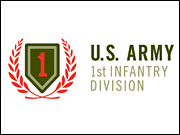One of my favorite critiques of our ad-saturated modern world is in "Infinite Jest," the epic novel by recently-departed author and essayist David Foster Wallace. In the novel's not-too-distant future, time itself has become a corporate marketing opportunity. There's the Year of the Trial-Size Dove Bar and the Year of the Depend Adult Undergarment. That's not to mention the Year of the Yushityu 2007 Mimetic-Resolution-Cartridge-View-Motherboard-Easy-To-Install-Upgrade For Infernatron/InterLace TP Systems For Home, Office, Or Mobile, which is often abbreviated.
 The novel's system of Subsidized Time is hilarious ... and you can almost imagine it really happening. At least corporate-sponsored years wouldn't present the disclosure problems of today's stealth ads -- marketing messages that masquerade as entertainment or news content.
The novel's system of Subsidized Time is hilarious ... and you can almost imagine it really happening. At least corporate-sponsored years wouldn't present the disclosure problems of today's stealth ads -- marketing messages that masquerade as entertainment or news content.
The Center for Media and Democracy believes that all advertising should be as clearly announced as the Year of the Trial-Size Dove Bar. That's why we just filed a comment with the Federal Communications Commission (FCC). The FCC is debating how its sponsorship identification rules apply to product placement, product integration and other types of "embedded advertising" relayed over television or radio stations.
In 2003, Commercial Alert urged the FCC to address product placement disclosure. "Advertisers can puff and tout, and use all the many tricks of their trade," the watchdog group wrote (pdf). "But they must not pretend that their ads are something else."
Especially, we would add, when that "something else" is news programming.

 The novel's system of Subsidized Time is hilarious ... and you can almost imagine it really happening. At least corporate-sponsored years wouldn't present the disclosure problems of today's stealth ads -- marketing messages that masquerade as entertainment or
The novel's system of Subsidized Time is hilarious ... and you can almost imagine it really happening. At least corporate-sponsored years wouldn't present the disclosure problems of today's stealth ads -- marketing messages that masquerade as entertainment or 
 Philip Morris
Philip Morris